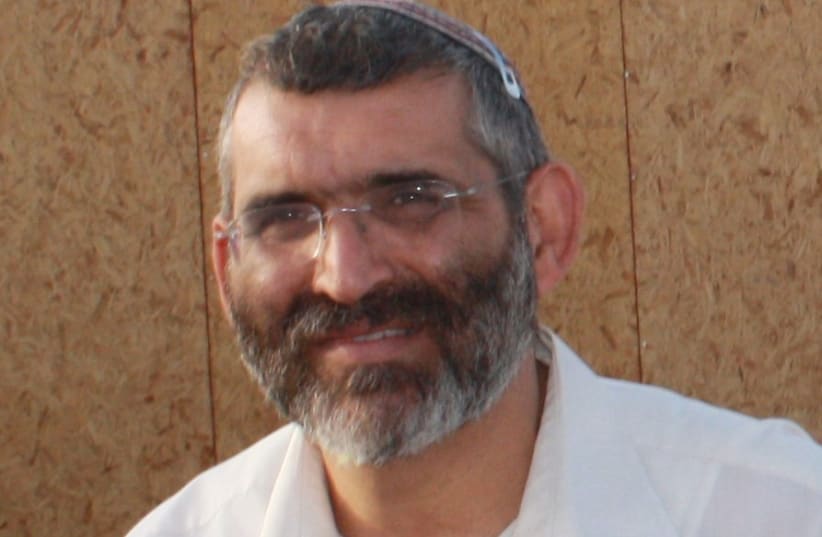The High Court of Justice heard multiple petitions on Thursday relating to the eligibility of the Balad-United Arab List parties and of candidates from the far-right Otzma party for the April 9 election.The Central Elections Committee disqualified Balad-UAL last week, but gave a green light to Otzma.In contrast, Attorney-General Avichai Mandelblit had suggested disqualifying Michael Ben-Ari of Otzma for extreme racism but gave his green light to Balad-UAL.Mandelblit said that Balad-UAL’s statements and activities were highly troubling, but did not reach a critical mass for disqualification.In contrast, he said that Ben-Ari’s main purpose and message in running was itself racism against Arabs, which meant he should be disqualified.Ben-Ari was given an unusual opportunity to personally explain himself to the court on Thursday, though typically non-lawyers do not get to speak.While his lawyers have said that he is not a racist and that comments he has made against Arabs are directed against violent Arabs or terrorists, Ben-Ari himself focused on the emotions of the moments during which he spoke.He noted that many of the statements against Arabs being presented as warranting his disqualification were made in the presence of family members of Jews whose loved ones had been recently murdered by Arabs.Mandelblit said that Ben-Ari’s comments were against all Arabs and that he has also taken actions against Arabs, which is significant evidence for disqualification.Likewise, multiple justices told Ben-Ari that his statements seemed to assume that 99% of Israel’s Arab citizens are disloyal.Ben-Ari’s lawyer Yitzhak Baum did not directly explain how his words could be interpreted differently, but he said that there was no real way to know how many Arabs were loyal since those who were loyal were intimidated into silence.Israeli Arab Justice George Kara asked Ben-Ari and Baum: “Who decides about loyalty? Does Ben-Ari decide?”He also asked what Ben-Ari’s criteria were for deciding whether he thought Arabs with Israeli citizenship were loyal to the state or whether he would brand them as traitors, as he has in some public statements.Baum responded that Ben-Ari would address this question to the voters and that it is an issue being debated in the political sphere.Justice Uzi Vogelman implied to Ben-Ari that statements he had made indicating that Arabs should be prevented from living in Afula were “removing the mask” of any chance of hiding his racist intentions.During the hearing, National Union Party leader Bezalel Smotrich got into a brief but unusual verbal spat with High Court President Esther Hayut.After Smotrich interjected with comments about the hearing in a voice loud enough for those in the court to hear, Hayut insisted that he refrain from speaking like the rest of the non-lawyer audience in attendance.Smotrich responded by yelling at Hayut that she needed to respect him as an MK and needed to stop disrespecting the Knesset.Hayut responded that while it might be custom for people to interrupt each other and call out in the Knesset, in the High Court this was not allowed and only the lawyers for the various parties were allowed to speak.Generally, the only time that non-lawyers can speak are when defendants who have been convicted can make a statement expressing regret as part of their sentencing hearing. Ben-Ari was given special permission because his candidacy for the Knesset was in question, but multiple left-wing politicians in attendance were also not permitted to speak.The purpose of the politics-blind rule that allows only lawyers ti speak is to maintain order and decorum.Following the conclusion of the Ben-Ari hearing there was yelling and pushing outside the court by activists supporting the opposing sides.Later Thursday, the High Court heard the petition regarding Balad-UAL.Balad – the party or its members – have been disqualified by the committee in all recent elections but have then been reinstated each time by the High Court.Adalah also took part in the petition, arguing that the committee has become so politicized that it should lose the authority to deal with the issue of disqualification.On Wednesday, the High Court heard multiple petitions to disqualify the Hadash-Ta’al Israeli-Arab parties and Hadash Knesset candidate Ofer Kassif.
Israeli Arab Judge to Ben-Ari: Who decides which Israeli Arabs are loyal?
High Court hears petitions over election eligibility of Arab, Jewish extremist parties
